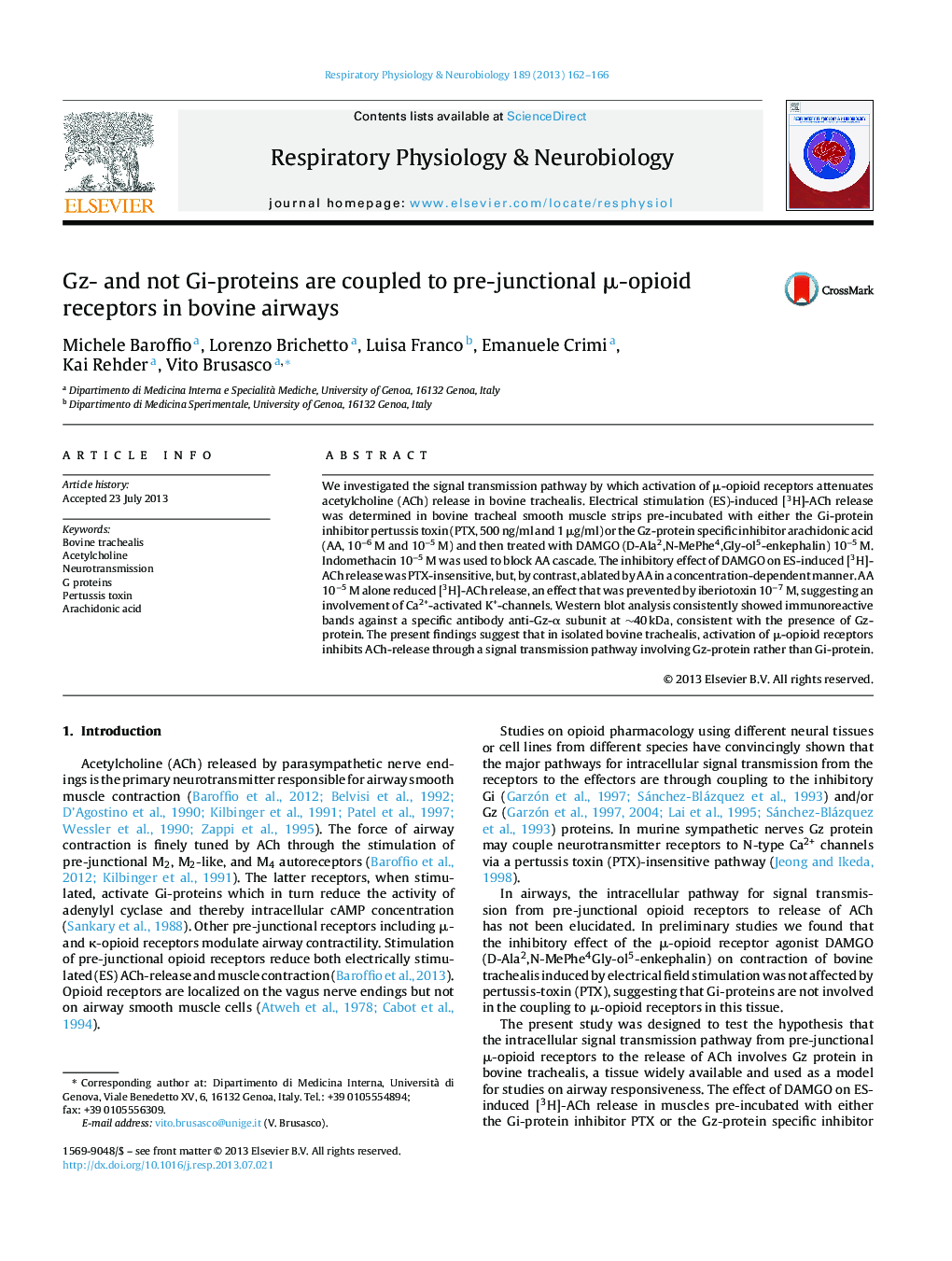| Article ID | Journal | Published Year | Pages | File Type |
|---|---|---|---|---|
| 5926128 | Respiratory Physiology & Neurobiology | 2013 | 5 Pages |
â¢The effect of μ-opioid agonist DAMGO on acethylcholine (ACh) release was studied.â¢Arachidonic acid but not pertussis toxin reduced the inhibitory effect of DAMGO.â¢Arachidonic acid alone inhibited ACh release by opening Ca2+-dependent K+-channels.â¢Gz α-subunit was consistently expressed in tracheal tissue samples.â¢In bovine trachealis, μ-opioids inhibit ACh-release via Gz- rather than Gi-protein.
We investigated the signal transmission pathway by which activation of μ-opioid receptors attenuates acetylcholine (ACh) release in bovine trachealis. Electrical stimulation (ES)-induced [3H]-ACh release was determined in bovine tracheal smooth muscle strips pre-incubated with either the Gi-protein inhibitor pertussis toxin (PTX, 500 ng/ml and 1 μg/ml) or the Gz-protein specific inhibitor arachidonic acid (AA, 10â6 M and 10â5 M) and then treated with DAMGO (D-Ala2,N-MePhe4,Gly-ol5-enkephalin) 10â5 M. Indomethacin 10â5 M was used to block AA cascade. The inhibitory effect of DAMGO on ES-induced [3H]-ACh release was PTX-insensitive, but, by contrast, ablated by AA in a concentration-dependent manner. AA 10â5 M alone reduced [3H]-ACh release, an effect that was prevented by iberiotoxin 10â7 M, suggesting an involvement of Ca2+-activated K+-channels. Western blot analysis consistently showed immunoreactive bands against a specific antibody anti-Gz-α subunit at â¼40 kDa, consistent with the presence of Gz-protein. The present findings suggest that in isolated bovine trachealis, activation of μ-opioid receptors inhibits ACh-release through a signal transmission pathway involving Gz-protein rather than Gi-protein.
